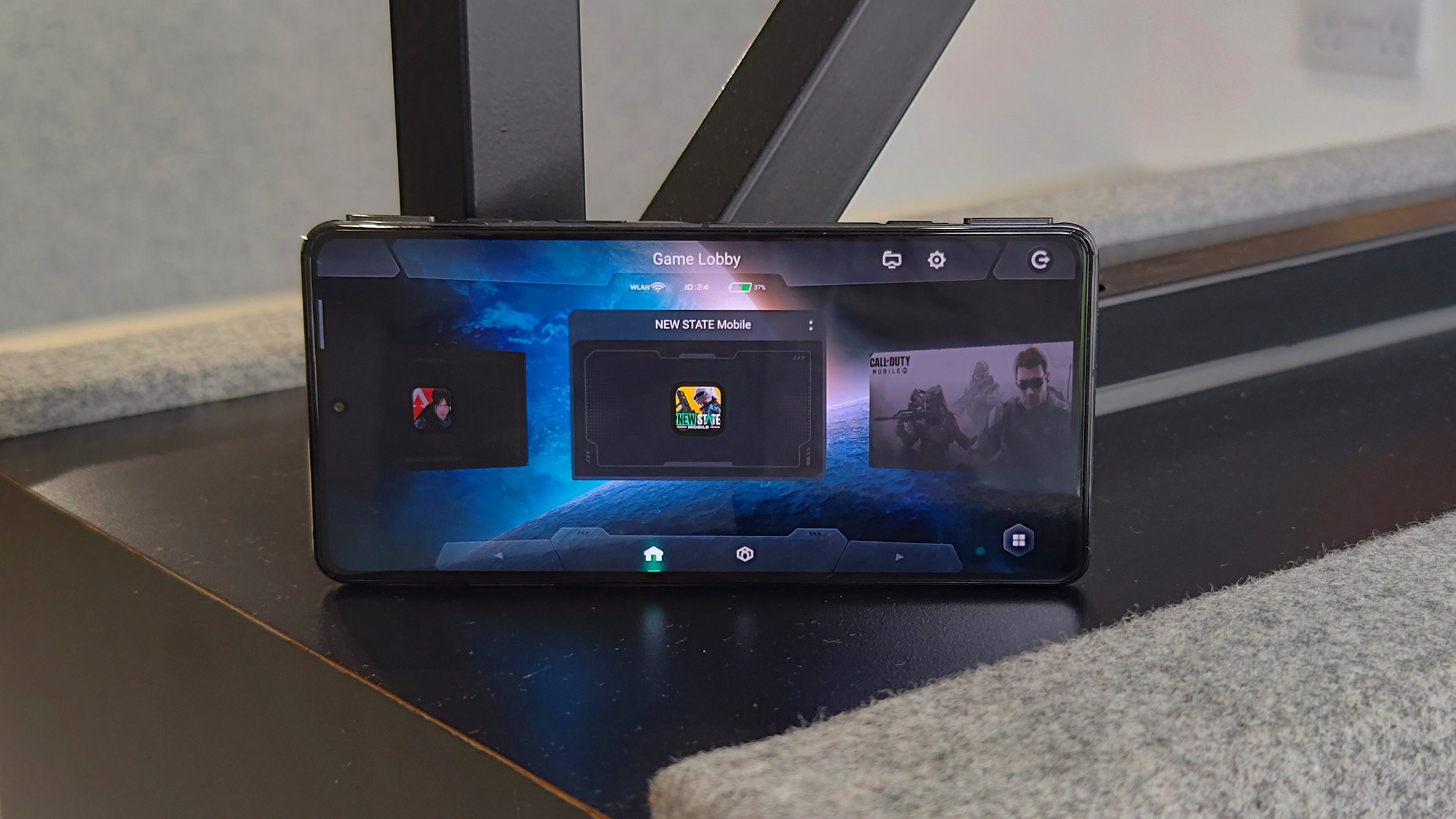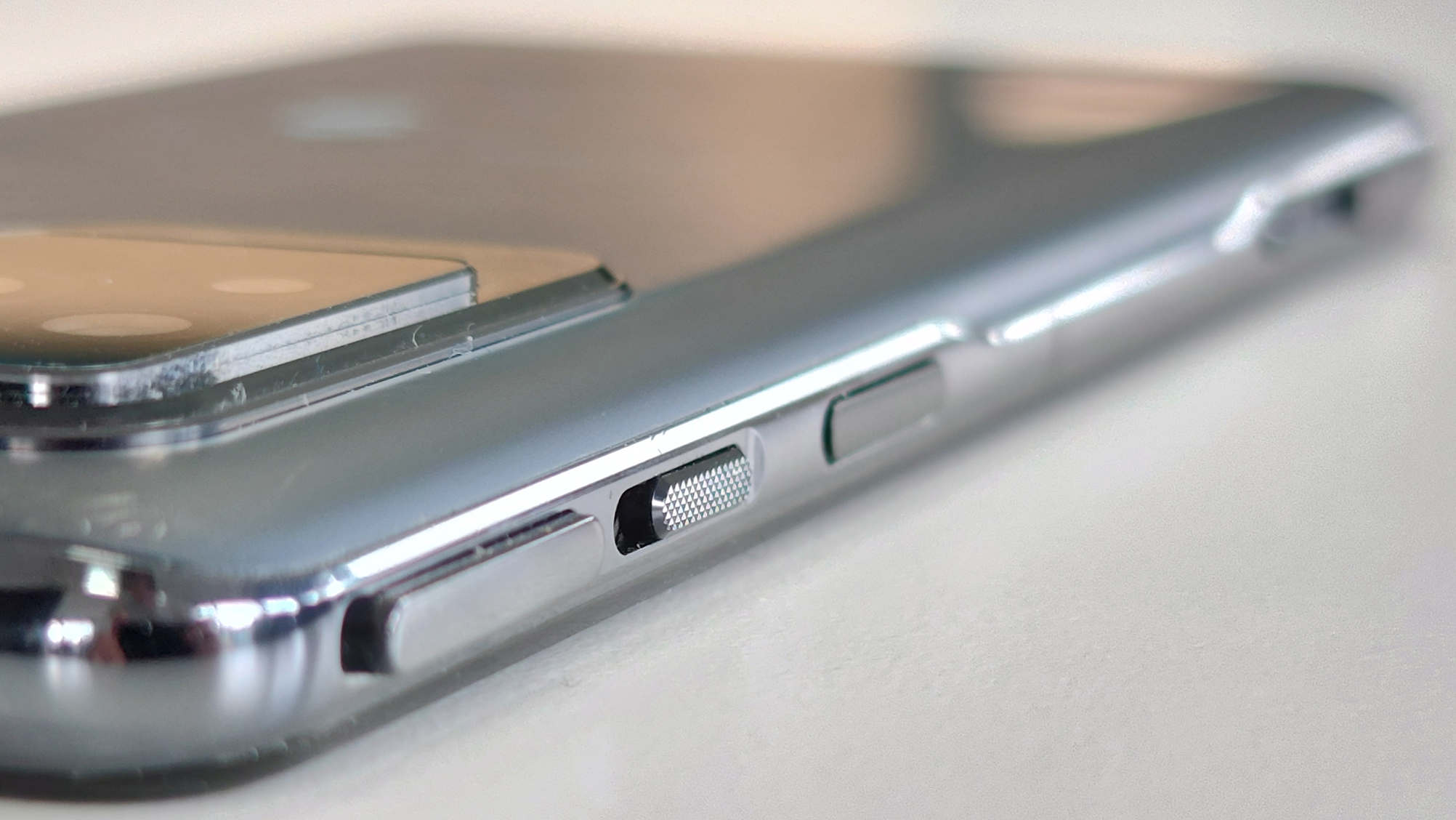This new phone is so good for gaming, I feel like I'm cheating
The scourge of Apex Legends

I've just finished testing the Xiaomi Black Shark 5 Pro – more accurately, I've finished playing games on it non-stop, which I think is acceptable considering it's a gaming phone – and it was a hard task putting it down.
The handset is great for gaming, with a powerful processor and a good-looking screen, but my favorite aspect are the physical triggers, which you can map to functions in a game. That means, when you press these edge-mounted buttons, the phone thinks you're pressing a certain area of the screen, so in a shooting game you can map one to the aiming button and another to the shoot button, making it quicker to press both.
In fact, the Black Shark 5's triggers were so useful, I felt like I had an unfair advantage while playing online competitive titles, like the recently launched Apex Legends Mobile.
Phone triggers
Physical triggers aren't exactly new to Android phones, and for a few years now gaming mobiles I've tested like the Lenovo Legion Phone Duel and Nubia Red Magic 6 have boasted haptic ones – this means your finger press is picked up when you tap a spot on the edge of the device.
The Black Shark 5 Pro has the best version of this that I've tried though (I should point out that the Black Shark 4 Pro and Poco F4 GT also use it, but I haven't tested those).
The triggers physically stick out, which means you get a satisfying 'click' when you press down on them – this means you know exactly how much force to use to press them, and know when your touch has been picked up. It's the closest feeling I've had to using a gaming controller when testing a phone.
But that's the problem – I'm the only one using these triggers.
Sign up for breaking news, reviews, opinion, top tech deals, and more.
A hardware show
The mobile gaming world is incredibly diverse in terms of hardware. You can be playing in a squad alongside people using the top-end Samsung Galaxy S22 Ultra, or a budget Motorola phone, and you'd never know.
For the most part, game developers cater to this discrepancy and make titles as accessible as possible, so having a weak mobile isn't a hindrance. But still, screen quality and refresh rate can make a difference – and for triggers, this is especially true.

It's hard to deny that triggers give you the edge when you're playing online shooters. Since you generally use the same thumb for movement and for shooting, to attack someone, you need to stop your moving, move your thumb, find the fire button and press it. This can be a time-consuming process. You can move and shoot, but it's fiddly.
Triggers cut that process out. You simply keep your index finger on the frame of the phone, and when you need to shoot, you just depress your digit a little bit; it's incredibly easy.
While your opponent is spending the time reaching for the 'shoot' button, your finger is already lifting from it after blasting them.
Apex Legends launched at a bad time...
I'd been looking forward to Apex Legends Mobile for a while, but its release came at the same time as the Black Shark 5 Pro turning up at my door – and I've just described how much of an advantage this phone gave me.
The Black Shark made it too easy to deal with frantic battles, when loads of different teams are converging on the same point at once. I didn't have to play tactically like everyone else, as my improved response times made me lethal.
Checking my stats now, my average damage per match is over 2,000, while my KD ratio is over 35; in the nine games I've played, I've won seven of them.
And I should clarify that I'm not bragging – I'm merely average at games most of the time. But this hardware gave me such an edge that it elevated me from 'indistinguishable from a bot' to 'regular MVP'.
Is this cheating? Well that depends on your definition – I'm not literally hacking the game, as lots of people do on these online shooters, but I am using tools that not every gamer has access to.
Luckily, I don't need to sit on this moral quandary for long – I'm already testing another phone without triggers – but it's definitely something to think about if you're considering buying the Black Shark or a similar device.

Tom Bedford is a freelance contributor covering tech, entertainment and gaming. Beyond TechRadar, he has bylines on sites including GamesRadar, Digital Trends, WhattoWatch and BGR. From 2019 to 2022 he was on the TechRadar team as the staff writer and then deputy editor for the mobile team.